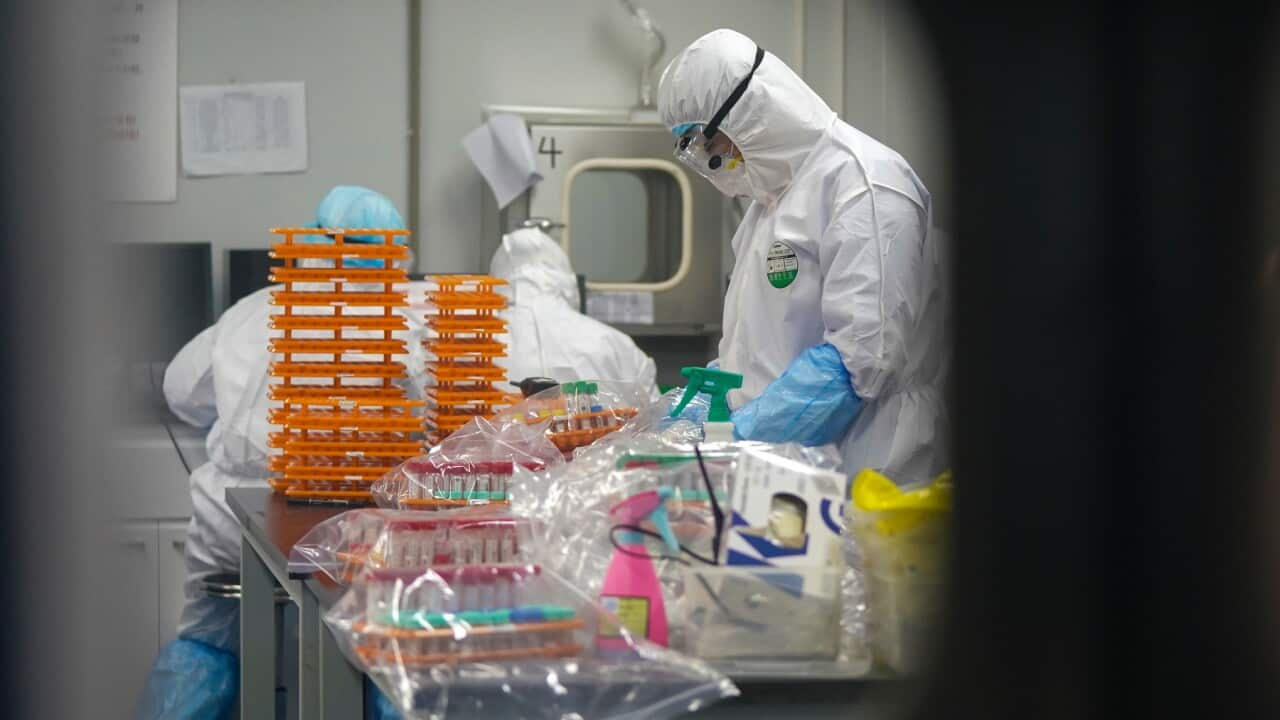Elderly Australians and people receiving medical treatment and their families have begun taking extra precautions to reduce the risk of contracting coronavirus.
Experts have advised people at risk of getting a severe case of COVID-19 to do more to protect themselves against the dangerous virus such as avoiding mass gatherings.
“You don’t have to be a hermit,” Infectious diseases expert Professor Robert Booy told SBS News. “You can do normal activities with small numbers of other people but avoid a big crowd. That’s where transmission is more likely to occur.”
Recent research in China has found that while the vast majority of people who contract coronavirus are expected to recover, some are far more vulnerable than others.
Older people, particularly those who are above 80 years old and those with pre-existing medical conditions such as cancer, diabetes, heart disease or asthma, are more susceptible because of weaker immune systems. Inderdeep Sandhu discovered a lump in her breast in 2018, and, after seven months of chemotherapy, she is now finally in remission.
Inderdeep Sandhu discovered a lump in her breast in 2018, and, after seven months of chemotherapy, she is now finally in remission.

Inderdeep Sandhu is in remission from breast cancer. Source: Supplied
She is worried that the harsh effects of cancer treatment have left her especially vulnerable to infections.
"After the effects of chemo they don't end once you finish the treatment, there are long term effects, and my immune system is a bit weakened," she told SBS News.
Since the virus began spreading in Australia, Ms Sandhu said she has taken extra precautions.
"We have cancelled our cruise trip which was supposed to be at the end of July, we have suspended swimming classes for the kids, we have stopped using public transportation.
"We can't be hermits but we are trying to reduce going out as much as possible."
'Use common sense'
The Health Department advises everyone in the community to practice good hygiene, such as washing hands often and avoiding touching others to protect against infections such as the coronavirus.
In the United States, the Centre for Disease Control and Prevention (CDC) on Monday expanded its guidance for people at extreme risk of serious illness from the virus, such as those over 60 or with underlying health conditions, recommending that they stay home as much as possible.
No such guidance exists from government agencies in Australia. The Department of Foreign Affairs urged Australians on Tuesday to reconsider taking an overseas cruise during the virus outbreak, particularly people with underlying health concerns.
Professor Booy said that many elderly people are already voluntarily self-isolating and he believed the US CDC's updated advice is reasonable.
"I think you should use common sense," he says. "I think you can go out to the shops, you can go out to coffee and meet your friends but I wouldn't go to an event with a thousand other people." Like many migrant families, the Sood family, based in Sydney, are a multi-generational household.
Like many migrant families, the Sood family, based in Sydney, are a multi-generational household.

The Sood family say they are taking basic precautions during the coronavirus outbreak. Source: Supplied
Jiwan Asa Sood said that because of his elderly mother and his asthmatic nine-year-old son, the family have implemented some basic changes to everyday routines.
"We are cleaning our house more often and also using hand sanitiser many times a day.
"We give the kids a small bottle of hand sanitiser to take with them to school and we remind them constantly to wash their hands."



